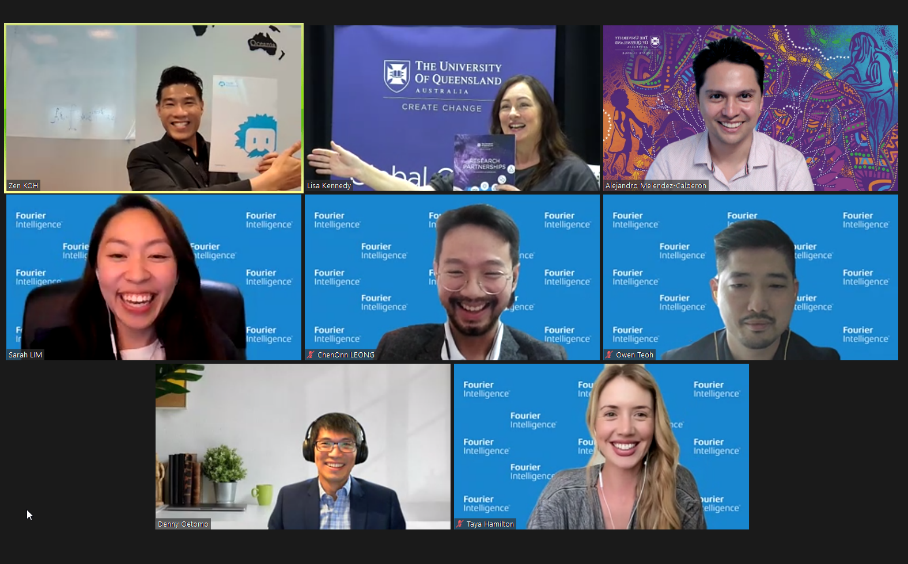The University of Queensland has announced a partnership with Fourier Intelligence. This partnership will combine Fourier Intelligence’s exoskeleton technology EXOPS™ and UQ’s expertise in the fields of neuro-engineering, rehabilitation, medical robotics, and artificial intelligence, to deliver research on personalised robotic therapy for the restoration of walking function post-stroke.
The project aims to co-develop methods for supporting locomotion therapy and promoting recovery in post-stroke individuals, by modulating the level of robotic assistance as required by the user, working harmoniously with the residual neuromuscular function. This, in turn, is expected to promote neurological recovery and decrease the reliance on the device over time.
Besides the potential impact at the individual level, the possibility of such adaptable devices represents a significant impact in mobility for the overall stroke patient population in Australia; which presents a vast range of mobility impairment levels.
The project, led by Senior Lecturer, Dr Alejandro Melendez-Calderon at the UQ School of School of Electrical Engineering and Computer Science involves a transdisciplinary research team of biomedical and rehabilitation engineers and scientists, and clinicians across multiple Faculties within UQ.
Namely, the Faculty of Health and Behavioural Sciences via its School of Health and Rehabilitation Sciences and the Faculty of Medicine via its School of Biomedical Sciences. It also sees the involvement of clinical institutions in the region, such as STARS and HabITec at The Hopkins Centre.
This partnership and project is leveraging capabilities created through the UQAI Collaboratory initiative, led by Professor Shazia Sadiq.
A virtual signing ceremony was held on the 6th of April to commemorate this collaboration agreement.

Top row, left to right: Zen Koh (Co-Founder & Group Deputy CEO, Fourier Intelligence), Lisa Kennedy (UQ’s Director of Research Partnerships) and Dr Alejandro Melendez-Calderon (Principal Investigator, UQ)
Middle row, left to right: Sarah Lim (Assistant Director of Support Services, Fourier Intelligence), Chen Onn Leong (Manager for Scientific Research, Fourier Intelligence) and Owen Teoh (General Manager, Fourier Intelligence)
Bottom row, left to right: Professor Denny Oetomo (Co-Director of The University of Melbourne - Fourier Robotics Laboratory) and Taya Hamilton (Clinical Consultant Oceanic Region, Fourier Intelligence)
With this partnership, The University of Queensland becomes part of the Global Rehabilitation & Assistive Technology (GReAT) Network. GReAT is an international association comprising top academic and clinical institutions around the world; aimed at optimising resource-sharing and knowledge transfer in the field of assistive and rehabilitation technologies.
Stroke and musculoskeletal disorders are some of Australia’s leading causes of physical disability. According to the 2018 National Stroke Audit, provision of rehabilitation services is already insufficient – with only 51% of services reported to have delivered the minimum of 2 hours per day of active therapy.
With this partnership now formalised, the team expects to deliver solutions that can increase the capacity of movement therapy delivery, with the aim of a positive contribution to the Australian healthcare system.



